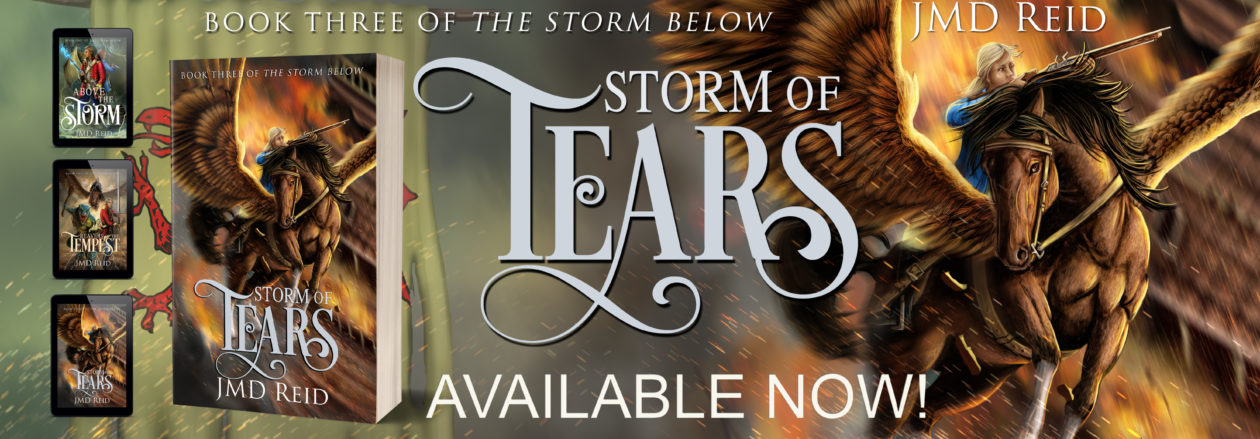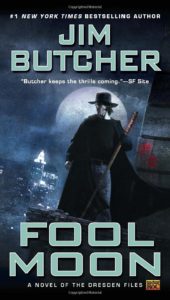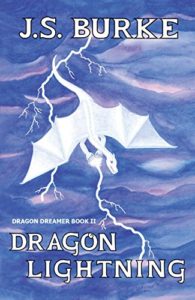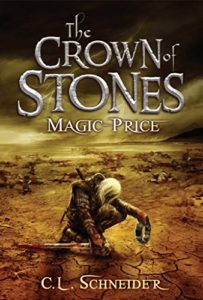Reread of Prince of Nothing Trilogy
Book 2: The Warrior Prophet
by R. Scott Bakker
Part 1
The First March
Chapter 6
The Plains of Mengedda
Welcome to Chapter Six of my reread. Click here if you missed Chapter Five!
One sorcerer, the ancients say, is worth a thousand warriors in battle and ten thousand sinners in Hell.
—DRUSAS ACHAMIAN, THE COMPENDIUM OF THE FIRST HOLY WAR
When shields become crutches, and swords become canes,
some hearts are put to rout.
When wives become plunder, and foes become thanes,
all hope has guttered out.
—ANONYMOUS, “LAMENT FOR THE CONQUERED”
My Thoughts
Interesting that the Inrithi believe that one sorcerer is worth ten thousand sinners in Hell while the Fanim believe one Cishaurim is worth the breath of thousands. One group is revered, the other tolerated. Which is the point of Achamian’s quote, to show us just how much value sorcerers have on the battlefield.
The second quote shows the plight the Fanim of Gedea are about to endure. They have just been conquered. We see the wives and other women of the Fanim camp-followers are taken as plunder at the end of the battle, and Saubon’s dream is to be king of Gedea. It’s why he marched in the first place. To be Thane. It is also a Norsirai lament, since it uses Thane to describe the leader. The poems language is visceral, conjuring limping Northmen leaning on swords and canes, fleeing the battle only for their wives to be taken as plunder and the men who just beat them to be their new rulers. Who wouldn’t despair?
Early Summer 4111 Year-of-the-Tusk, near the Plains of Mengedda
Morning dawns to war horns blaring for the Inrithi host. Despite dozens of small battles, Saubon has reunited with the Tydonni and Thunyeri hosts in the hills adjacent to Mengedda. The three hosts have agreed to march together and press their advantage, believing they have the best terrain on which to fight the Fanim. As the host assembles, some soldiers in it wonder if others had troubled sleep and can hear the hissing sound.
The soldiers assemble, the lords marshaling their men. Wives and concubines embrace their men while priests lead everyone in prayers or sacrificial rites. Everyone is preparing for battle, calling upon any superstition to see themselves and their loved ones through the battle.
Augurs cast their bones. Surgeons set knives upon fires, readied their kits.
As the Men of the Middle North finish forming their line of battle, the Fanim appear. The “entire horizon seemed to move, winked as though powdered by silver.” The Grandees of Gedea and Shigek have arrived to do battle. At the same time, scouts find the bones of the Vulgar Holy War rotting in the field. “The ruin of an earlier Holy War.” Then hymns are sung by the Inrithi, at first a multitude, bu tone wins through.
A warring we have come
A reaving we shall work.
And when the day is done,
In our eye the Gods shall lurk!
The song was old, hailing from the Sagas. It inspires the soldiers, invigorating them. “A thousand years and one song!” The Inrithi are prepared to stand and fight, crying as they sing their hymn as the flashing Kianene ride out to fight. The Agmundrmen with their yew bows are the first to fire on the advancing enemy. Then the Inrithi knights charged, Athjeari the first with more following. The footman watch the avalanche, cheering them on. The knights are hit by Kianene arrows but keep riding as “the madness fell away. Once again it was the pure thunder of the charge. The strange camaraderie of men bent to a single, fatal purpose.”
They charge over brush and the bones of the Holy War. Twenty-thousand heavily armored men bear down on the Kianene. “The fear dissolved into drunken speed, into the momentum, became so mingled with exhilaration as to be indistinguishable from it.” Then they slam into the Kianene lines. Men die.
But the Kianene do not stand and fight. They retreat, firing arrows behind them. They are swifter, not encumbered by all the armor. And then the lightly armored Kianene break apart and heavily armored cavalry slam into the Inrithi charge. The Fanim let out ululating cries. “But war was bloody work, and the iron men hammered their foes, split skulls through battlecaps, cracked wooden shields, broke the arms battering them.”
The fighting is viscous. Yalgrota Sranchammer lays death about him as if the Fanim “were children.” The great names fight, rallying their men. Some die. It is chaos. The Fanim are everywhere, hitting their flanks, even charging into their rear.
Beset on all sides, the Men of the Tusk died. Taken in the back by lances. Jerked by hooks from their saddles and ridden down. Pick-like axes punched through heavy hauberks. Arrows dropped proud warhorses. Dying men cried to their wives, their Gods. Familiar voices pierced the cacophony. A cousin. A mead-friend. A brother or father, shrieking. The crimson standard of Earl Kothwa of Gaethuni toppled, was raised once more, then disappeared forever, as did Kothwa and five hundred of his Tydonni. The Black Stag of Agansanor was also overcome, trampled into the turf. Gothyelk’s householders tried to drag their wounded Earl away, but were cut down amid a flurry of Kianene horseman. Only a frantic charge by his sons saved the old ear, though his eldest, Gotheras, was gored in the thigh.
Retreat is sounded, but they are surrounded and unable to flee. Until suddenly, an opening appears. Shrial Knights shout to flee. Panicked Inrithi knights follow. Many of the retreating men are slaughtered within sight of the safety of the lines. The song has died.
“Dread and the heathen were upon them.”
Saubon is furious, screaming that they had them. But Gotian argues with Saubon, telling him that they were fools to keep pursing. When fighting the Kianene, you retreat back to the lines when they break. They regroup to fast. Saubon is furious still, ranting about how the Kianene broke like children. Then an arrow strikes him in the chest, but stopped by his armor. Gotian gets through to him. And Saubon realizes he’s doomed them.
“Gather your wits, man!” Gotian roared. “We’re not like the heathen. We’re hard, but we’re brittle. We break! Gothyelk is down. Wounded—perhaps mortally! You must rally these men!”
“Yes… Rally…” Abruptly, Saubon’s eyes shone, as though some brighter fire now moved him. “The Whore would be kind!” the prince cried. That’s what he said!”
Gotian could only stare, bewildered.
Coithus Saubon, a Prince of Galeoth, the seventh son of old evil Ereyeat, hollered for his horse.
Now the Kianene lancers charge the Inrithi lines, facing pikemen and falling dead from arrows. Some Fanim throw the heads of dead noblemen at the Inrithi, who just throw them back. Their charge falters in parts, stunned by the ferocity and stout hearts of some of the Norsirai. The Fanim keep charging, looking for the weakness in the iron men’s lines to exploit. But each time, they fail and are forced to retreat, leaving scores of dead in their wake.
By a marsh, Crown Prince Fanayal, the Padirajah’s son, lead famed heavy cavalry, the Coyauri, against the Inrithi. Despite their initial success, a charge of surviving Inrithi knights drive them away after taking heavy losses. This heartens Saubon, and he musters more of the Inrithi knights to counter-charge the Fanim. They have learned from their earlier mistake, and retreat back to their lines instead of pursuing the Fanim and becoming enveloped.
The sun climbed high, and scoured the Battleplain with heat.
The Earls and Thanes are learning to respect and fear the Fanim, their skill at horsemanship, and their archery. Thousands of Inrithi lie dead from the arrows alone. In a lull in the fighting, exhausted men break down crying while the camp followers give first aid. Then word comes that the Fanim seek to outflank them, but Saubon anticipated it and the attack is undone, which bolsters Inrithi spirits.
Then Skauras himself, the Sapatishah-Governor of Shigek, appears before his forces, taunting the Inrithi surrounded by a group of retainers. Archers try to shoot him, spurred on by a reward offered by Saubon. Some of the Agmundrmen arrows come close, but Skauras and his retinue pretend not to notice until one is killed. The escort scattered, but Skauras doesn’t. He remains there, unmistakable in his battle garb.
Arrows fletched in faraway Galeoth pocked the turf about him [Skauras], but he didn’t move. More and more shafts feathered the ground as Agmundrmen began finding the drift and distance. Facing the Inrithi, the remote Sapatishah pulled a knife from his crimson girdle—and began pairing his nails.
Now the Fanim began to laugh and roar as well, beating their round shields with sun-flashing scimitars. The very earth seemed to shiver, so ferocious was the din. Two races, two faiths, willing hate and murder across the littered Battleplain.
Skauras raises his hand, and the Fanim advance. The Inrithi ready to fight as the Fanim charge across the entire line, lances lowered. Others fired arrows. The charges came in waves, crashing over and over into the northmen. “Entire companies were sacrificed for mere lengths of earth.” The fight is brutal, chaotic, lacking any tactics. It is a desperate struggle. And then the Cishaurim appear.
Saubon is fighting on horseback, screaming, “The God wills it!” He kills men over and over, hacking hard with his sword, the Coyauri he fights grew nervous, retreating from his ferocity as he calls them cowards. And then his fourth horse is killed out from beneath him. He is on the ground, struggling to get back to his feet, but he his attacked and knocked down on to his face.
By the gods, his fury felt so empty, so frail against the earth! He reached out with his bare left hand and grabbed another hand—cold, heavily callused, leathery fingers and glass nails. A dead hand. He looked up across the mattered grasses and stared at the dead man’s face. An Inrithi. The features were flattened against the ground and partly sheathed in blood. The man had lost his helm, and sandy-blond hair jutted from his mail hood. The coif had fallen aside, pressed against his bottom lip. He seemed so heavy, so stationary—like more ground…
A nightmarish moment of recognition, too surreal to be terrifying.
It was his face! His own hand he held!
He tried to scream.
Nothing.
Then Kussalt, Saubon’s groom, helps him to his feet, saving him. Saubon is reeling, realizing the ground is cursed. He recovers thanks to Kussalt’s fatherly manner. Saubon gathers himself and then demands Kussalt’s horse, calling him old and slow. Kussalt sours and Saubon berates him. Then the old man is hit with an arrow in the back. As the old man’s dies, he laughs, one of the few time Saubon ever heard. He grieves, not wanting Kussalt to die.
“I would have you know…” the old man wheezed, “how much I hated you…”
A convulsion, then he spat snotty blood. A long gasp, then he went utterly still.
Like more earth.
Saubon grows empty, and then realizes this place is cursed. He can’t believe that Kussalt, the nearest thing to a father to he has, hated him. He tries to believe it’s a joke, to shake it off. And then people scream Cishaurim. Sorcery explodes. Gotian shouts for him. Saubon grows angry at Kussalt, but transfers it to Gotian. He remembers Kellhus words for the Shrial knights to be punished.
“Charge them,” the Galeoth Prince said mildly. He hugged his dead groom tight against his thighs and stomach. What a joker.
“You must charge the Cishaurim.
Fourteen Cishaurim walked into battle to elude Chorae crossbowmen instead of striding the sky where they would be obvious and vulnerable. No Cishaurim can be risked since the Scarlet Spire marches with the Holy War. “They were Cishaurim, Indara’s Waterbearers, and their breath was more precious than the breath of thousands. They were oases among men.” They walk among the lines of the Fanim, casting sorcerery, burning Inrithi arrows into ash. Wherever their sightless eyes gazed, Inrithi died in “blue-blinding light.” Many northmen remember their training, huddling behind shields while others fled, including the Agmundrmen archers. The center dissolves. “Battle had become massacre.”
Fanayal and his Coyauri cavalry withdraw in the confusion, pursued by four thousand Shrial Knights. Only they aren’t charging the Coyauri, but the Cishaurim, howling, “The God wills it!” Gotian’s horse is burned out from beneath him. Sarcellus is killed by the shrapnel from a knight exploding beside him. Hundreds of knights die in heartbeats. But they keep charging across the “smoldering ruin of their brothers, racing one another to their doom, thousands of them, howling, howling.”
Then a lone rider, a young adept, swept up to one of the sorcerer-priests—and took his head. When the nearest turned his sockets to regard him, only the boy’s horse erupted in flame. The young knight tumbled and continued running, his cries shrill, his dead father’s Chorae bound to the palm of his hand.
Only then did the Cishaurim realize their mistake—their arrogance. For several heartbeats they hesitated…
A tide of burnt and bloody knights broke from the rolling smoke, among them Grandmaster Gotian, hauling the Gold Tusk on White, his Order’s sacred standard. In that final rush, hundreds more fell burning. But some didn’t, and the Cishaurim rent the earth, desperately trying to bring those with Chorae down. But it was too late—the raving knights were upon them. One tried to flee by stepping into the sky, only to be felled by a crossbow bolt bearing a Tear of God. The others were cut down where they stood.
They were Cishaurim, Indara’s Waterbearers, and their death was more precious than the death of thousands.
Silence falls as the Shrial Knights limp back to the Inrithi, Gotian carrying a burnt youth. But Skauras isn’t dismayed. He has realized the Cishaurim have done their work. The Inrithi center has collapsed and struggles to reassemble So he orders his men to charge again. But the the iron men reform in time, heartened by the Shrial knights charge. And they began to sing their song once more. “As the afternoon waxed, many more joined the fallen.”
But that doesn’t matter, the Northmen have rallied. They are heartened, all singing together. The Fanim resolve falters as they crash over and over into the Inrithi lines. “For they saw demons in the eyes of their idolatrous enemy.” And then Proyas’s banner is seen, his Conriyans have arrived, and Skauras sounds the retreat. The haggard Northmen charge in pursuit and the Fanim panic and rout instead of retreat in an orderly fashion. “The knights of Conriya swept into their midst, and the great Kianene hosts of Skauras ab Nalajan, Sapatishah-Governor of Shigek, was massacred.” The Fanim camp is looted, women are raped, slaves murdered, and plunder taken.
By sunset, the Vulgar Holy War had been avenged.
Over the following weeks, the Men of the Tusk would find thousands of bloated horses on the road to Hinnereth. They had been ridden to death, so mad were the heathen to escape the iron men of the Holy War.
Saubon watches the camp-followers of Proyas’s host walking wearily, and he realizes Proyas had pressed hard to reach the battle. He notices Achamian and asks where Kellhus is. Saubon takes offense that Achamian called him by name. Achamian doesn’t know. Saubon grows angry but then is unsettled by the memory of seeing himself dead and buried. He then asks Achamian for help. Bemused, the sorcerer agrees.
“This ground… What is it about this ground?”
The sorcerer shrugged again. “This is the Battleplain… This is where the No-God died.”
“I know the legends.”
“I’m sure you do… Do you know what topoi are?”
Saubon is hit with fatigue as Achamian explain that topoi are like tall towers built from trauma and suffering. And like tall towers, they let you see farther than you can from the ground. Only topoi let you see into the Outside. “That’s why this ground troubles you—you sand perilously high… This is the Battleplain. What you feel isn’t so different from vertigo.” Saubon agrees, exhausted. And blames that on his experience. But Achamian continues, saying that this topoi is special. Saubon asks him to explain what that means.
The soul that encounters Him,” the Schoolman continued, “passes no further.”
“And just fucking what,” the Galeoth Prince said, shocked by the savagery of his own voice, “is that supposed to fucking mean?”
The sorcerer looked out across the dark plains. “That in some way, He’s out there somewhere… Mog-Pharau.” When he turned back to Saubon, there was real fear in his eyes.
“The dead do not escape the Battleplain, my Prince… This place is cursed. The No-God died here.”
My Thoughts
The troubled sleep and hissing sound is our first hint that Mengedda is, as later explained, a topoi. A place where the Outside bleeds into reality. The land is marked by the many battles and witnessing the death of the No-God. These whispers are only the beginning of the weird stuff that happens.
The opening section of this chapter is Bakker writing in the historical mode, more recounting events than having characters experience it. He mixes that close, personal style of POV with these more sweeping ones so he can describe chaotic battles in their total instead of limiting the reader to only small snippets of it. He also uses it to pass time and describe the impact of events. I rather like the mix of the omniscient and the limited third person.
And, of course, the Norsirai, based on Germanic Europeans, ride into battle drunk. You’ll notice how some, like the Galeoth, have been “Inrithi” long enough to lose most of their pagan ways while the Thunyerus only converted in the last generation, still very much barbarians and not civilized wholly yet.
The song the Inrithi sing is haunting. I can just imagine thousands upon thousands of soldiers singing it, this deep, rumbling bellow coming from these barbaric men in armor on foot as the graceful Fanim in their colorful silks and nimble horses advance.
The Sagas are a collection of works about the First Apocalypse that Achamian is dismissive of. Well, he does live the events in his dreams.
I love how Bakker differentiates the two forces. The Kianene are a race of the sun, the desert, all brilliant and colorful, while the Norsirai are dour men of the gray north, from haunting woods and cloudy days.
We also see some of the problems of feudal warfare. Since each lord has his own troops, there is disparity in size. Some spots on the Inrithi line don’t have enough men, while others have far too many. And there is plenty of arguments, the command structure iffy at the best of times. These men like to see themselves as equals, not officers. But despite that, they are united in common cause.
Of course Athjeari is the first to charge. He’s a minor character, but the young man and his cavalry are always out in the fore, scouting, raiding. He seems to want to be first in everything, full of that brash confidence of youth.
Bakker really captures the charge of the Inrithi, his prose bringing to life the armored men, noting the differences in their appearance, the fall of arrows. I particularly love the line right before they reach the Kianene “Saw eyes whiten in sudden terror.” Twenty-thousand heavily armored men charging at me would do that.
Reading this part is enthralling. You can almost hear the Fanim cry like Bedouin tribesmen of our own world.
And through the battle, Bakker drops all these names of characters we may never even heard of or who might have been mentioned in passing. But it doesn’t overwhelm us. It’s like reading history, hearing about this noble dying, this group of soldiers perishing. His world building is on full display, giving us a peek into all the back story that the novels are built upon, the foundation unseen because it is sunk so deep into the dirt.
Saubon has lost it, seeing victory turn into disaster. He saw the enemy break, not realizing the Fanim don’t break like soldiers normally do. They are used to retreating. It doesn’t demoralize them. They regroup fast. But soldiers who don’t think retreat is an option, like the Inrithi, have a hard time. They can last far longer but when they do retreat, it is a rout, broken, fleeing. They are not flexible. It’s both a strength and a weakness. They can take a lot, but it’s bad when they lose. But then, he remembers Kellhus’s words. He clings to them. They are his only hope now.
The fighting grows fiercer, but now the Inrithi’s iron stubbornness becomes their strength, their footman holding time and time against enemy charges. The Fanim don’t have the weapons to face the Inrithi in melee. With their heavy shields, two-handed weapons, and pike formations, they are butchering the lighter cavalry. Even the heaviest cavalry the Fanim have, are driven back.
We also get our first glimpse of Fanayal. Remember his name, he’ll be mentioned quite a lot as the series heads farther and the Holy War continues against the Fanim. He’s brave, fighting with his men, doing dangerous work. And he’s the heir of his country.
Skauras pairing his nails is a brilliant bit of writing. Here we are seeing the personality of the general commanding the Kianene forces, a wily tactician we’ve heard about since the series started. The man respected by Conphas of all people. Unwilling to show fear as archers come closer and closer to killing him, defiant, inspiring his men while risking his own life, and keeping his nails tidy in the process. It is posturing at its greatest and most deadly. War is belief. When you believe your winning, you keep fighting. When you believe your losing, you stop. Numbers rarely matter unless they are vastly lopsided. And even then, belief can keep men fighting.
What a sad sentence to write about how truly pointless war can be sometimes: “Entire companies were sacrificed for mere lengths of earth.”
Remember Saubon seeing his own face and hand stick out of the earth. The Battleplain is a topoi, and this event will be revisited one day in the series. (And for those who have read that part, such chills reading this passage again knowing what is to come).
Saubon sees Kussalt as the father he yearned for instead of the abusive one he had. And yet he is as abusive to the old man as his own father was. “You’re old and slow.” Just takes away the man’s pride, right when he was actually showing some affection for Saubon, pride at him for stemming the breach. As he dies, he finally tells Saubon how he feels. Just like Saubon hates his father for being abused, Kussalt hates Saubon for the same reason.
And then Saubon tries to deny those words. Kussalt appears to be the only person Saubon cares for, a man he respects and loves. And then to learn the man hated him, it sends him reeling. He transfers his anger at Kussalt onto “the fucking picks.” Picks, of course, a racial slur for Ketyai, like Gotian and the Kianene.
Bakker always describes sorcery as something at once both beautiful and horrific. “Filaments of blue incandescence, fanning out, glittering with unearthly beauty, burning limbs to cinders, bursting torsos, immolating men in their saddles.”
How many authors would kill a major character like Sarcellus with such a bare bones mention, almost off-hand, in the catalog of casualties suffered by the charging Shrial Knights. Just like that, the skin-spy masquerading as Sarcellus is killed by a piece of shrapnel. No fanfare. Nothing to draw attention to the significance of the event. But killing Sarcellus was the whole point of Kellhus’s “punish the Shrial knights.”
Nothing hammers home in Bakker’s work on both the rarity of sorcerers and their value when fourteen are killed and it is a disaster. But you see why. They ravaged the Inrithi. Even Skauras thinks that the amount they killed was enough.
And here we see belief at work. The Northmen are heartened despite taking so many causalities because of the Shrial Knight’s suicidal charge worked. The Cishaurim, this great and terrible force that was decimating them, was defeated through impossible odds and insane courage. And then, charging the Fanim when they retreat, finally broke them because they believed they had lost. They are flexible, but even the most stretchiest rubber can snap thanks to Proyas’s timely arrival.
Saubon is so haunted by the battle, he speaks to Achamian despite the man being his lesser. You can see that same off-handed insulting manner Saubon has. He probably doesn’t even realize that he does it. The sort of casual abuse that sours a man against you over time.
How utterly horrible to die fighting on the Battleplain and end up stuck here, buried in the ground maybe, reaching up at your own living self. All those men who had trouble dreams, all those men who heard strange noise, how many of them are trapped in the vacuum left by the No-God’s passage. Bakker truly has a horrifying afterlife. (And it only grows more disturbing the more you learn).
So, Saubon did it. Even without Proyas, he had one the battle. Proyas just ensured it was such a one-sided victory. Kellhus’s gamble paid off. The first Great Name now has proof that Kellhus is a prophet like he claims.
Click here to continue on to Chapter 7!
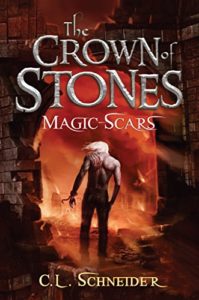 It’s been two years from the events of the last novel. And for those two years Ian Troy, a magic-using Shinree, has been a slave to the magic-suppressing drug kanyl. In a haze, he has worked in the mines, performing back-breaking labor for the man defeated him—Drakon.
It’s been two years from the events of the last novel. And for those two years Ian Troy, a magic-using Shinree, has been a slave to the magic-suppressing drug kanyl. In a haze, he has worked in the mines, performing back-breaking labor for the man defeated him—Drakon.